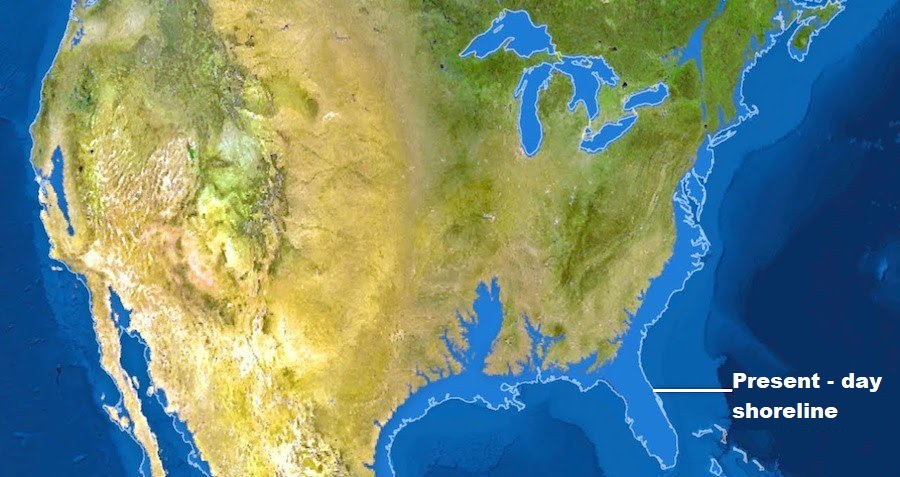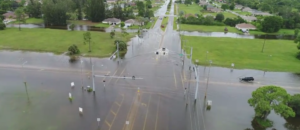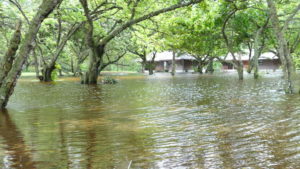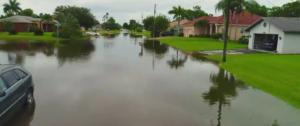More Flooding, More Diseases from Bugs and More Homes Under Water Real Estate Attorney Roy Oppenheim’s Thoughts On Global Warming
Tue Jan 15, 2019 by Oppenheim Law on Florida Real Estate

What Does Global Warming Mean For South Florida’s Real Estate Market?
South Florida is a magical place of tropical weather, beautiful beaches, luxurious landscape, the millions of acres of the everglades, unique wildlife, and so many other natural attractions that lure millions of newcomers and visitors each year. These natural wonders also make South Florida one of the most vulnerable to climate change. In addition to the importance and impact on Florida’s eco-system, the local economy, particularly the hospitality and real estate industries, are highly dependent on preserving Florida’s natural resources. So aside from the direct impact on Florida ecology, it is important for all of us – lawyers, real estate people, and the like, to look to the future and try track of the changes that may affect our industry.
Regardless of how you feel about climate change, the scientific community does not address subjective ideologies. Rather, the scientific community continuously monitors and reports on the objective changes to the Earth and its inhabitants.
Did you know?
1. Nuisance flooding in high tide areas like Miami-Dade county will continue to “rise.”
The previous volume (2014) of the report indicated that seasonal flooding such as high tide or “King Tide”, would start becoming a permanent phenomenon for several cities in Florida, including Miami. This 2018 Volume of the report indicates that based on recent measurements, the 2014 prediction has transformed into a predicament. Nuisance flooding is no longer seasonal but officially permanent and will not decrease. The only option is to act, and transact business, under the awareness of the increased flood-related risks.

[1] In a nut-shell, these are the most relevant points for South Florida’s Real Estate community from the 1524 page Fourth National Climate Assessment Vol. 2: Impacts, Risks, and Adaptation in the United States:
Nuisance flooding has serious effects on real estate. First of course, you can’t sell a house that is literally underwater. You have a dramatic decrease on properties’ prices as well as other economic impacts related to structural damages, variables on valuation of surrounding properties, and municipalities’ loss on property taxes. According to the report, about 40% of the entire property tax base in Miami-Dade county is at risk. Drastic increases in flood insurance policies are expected and flood zoning will be extended from the usually included areas, such as Miami Beach and Key Biscayne, to western neighboring cities, increasing homeownership-related costs in almost all of South Florida.
2. Mosquito and Ticks present serious health risks.
According to the report, due to temperature’s increase, South Florida has now a year-round suitable condition for the transmission of vector-borne diseases. Mosquito-related activity, especially suitable to the species Aedes aegypti, which spreads the well-known Zika viruses is no longer a seasonal nuisance but a constant public health problem.
If an outbreak occurs, it is certain to cause an economic crisis for the affected area. For instance, South Florida’s economy will be severely affected if the number of people infected with vector-borne diseases force health authorities to deploy protocols such as those deployed in Wynwood due to Zika outbreaks. The economic devastation of a bigger outbreak can be predicted by evaluating the impact of the 2016-2017 advisory. During the outbreak, the CDC issued warnings in 2016 and as the cases increased, the CDC issued travel advisories in the beginning of 2017, which were not removed until June 2, 2017. The advisories were issued for only a mile-long area in Wynwood; however, they caused a loss of 40% of the income of businesses located across the entire Art District of Wynwood. Hence, if an outbreak forces local authorities to issue advisories for larger areas in South Florida, it is expected that the loss would be similar to that experienced in Wynwood, beyond the affected areas. Such a scenario would rapidly impact all local industries including real estate. In a prior blog and accompanying video I addressed the interaction between abandoned properties, which become mosquito sanctuaries, and vector-borne diseases, but the report is quite eye opening concerning the big impact warmer weather has on the cycle and how mosquitoes can actually increase the amount of vacant properties as opposed to vacant properties, thus increasing the amount of mosquitoes.

3. Transformation of Natural Ecosystems.
According to the report, climatic thresholds will be crossed in a few years, which will transform ecosystems and landscapes in the state of Florida. That means that realistically, my kids can no longer expect that their kids will experience the same benefits from Florida’s natural resources as I, or they did growing up. It is sad to say, but you better hold on to those family trips’ pictures for your grandchildren!
One of the most immediate changes highlighted in the report that will definitely have an impact on real estate, is coral bleaching. Coral bleaching is a phenomenon, caused by rising ocean temperatures, currently putting in danger Florida’s coral reefs, the world’s third largest coral reef system. The report highlights the spread of a previously unknown coral disease that infects corals and kills them in a matter of weeks. The report mentions that even tough, the nature of the disease is still unknown, it was determined that its spread was made possible by “stressed reef” conditions already documented in the 2014 version of the report.

This danger to the Coral Reef, besides being an ecological disaster, is a hard hit to South Florida’s real estate industry, specially to coastal communities and the Keys. The reefs and the species that live in them, attract millions of tourists feeding the economy and properties’ values in those areas. Hence, if the reef does not survive, our industry will be affected in the short and long run.
Now here’s the good news: South Florida is one of the areas of the state that is taking action and local governments are raising enormous amounts of capital, specially from private industry players, to fund research and build infrastructure capable of withstanding the effects of climate change. For instance, thanks to the recent plumbing work installed by the City of Miami, this year’s King Tide was significantly less problematic. That shows that engineering and creative design may offer at least some ways to mitigate the damages caused by climate-change. I have addressed this issue before, so if you are interested please take a look at my PBS presentation. I urge you take a look at this interesting data of the Fourth National Climate Assessment Vol. 2 and draw your own conclusions. You can find the complete report here.
In the mean time, keep your row boats and waders close at hand.
From The Trenches,
Roy Oppenheim.


Leave a Reply